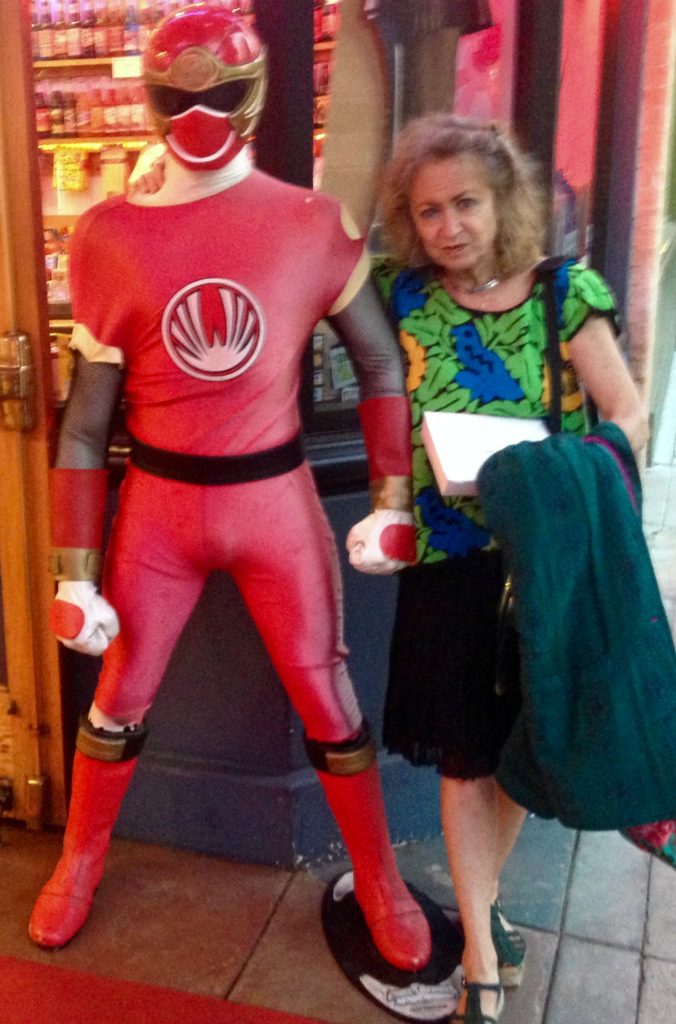“Imagination is More Important than Knowledge” Albert Einstein
Growing up, I always felt different. Of course I struggled with this, trying desperately to fit in, reading in the dark, trying to strain my eyes so I might need glasses because one of the “popular girls” wore them and I thought they would give me access to her status. When the surfer girl look came along, I was again, out of sync, with a mass of kinky/curly hair that only went straight when I set it on huge orange juice cans slathered with Dippity Do, even attempting to sleep on this torture contraption, so I’d be acceptably straightened for school the next day, only to have my smooth cap of hair spring back into a froth of frizz as soon as the morning fog hit. Next came ironing—my hair, that is. I wanted that parted in the middle, straight down the sides Cher look, with a long, silky rope of hair that swung down to my waist. But I gave this up after singeing the side of my face, not the in look I was going for.
I’ve now made peace with my hair; in fact, I celebrate my hair, along with all the other differences that plagued me growing up. It turns out they are all the best things about me and they help me to appreciate and participate in the arts. So here’s my rant against uniformity, and I don’t think it’s overstating the fact to say that uniformity is a danger facing our entire country. Just look at the current state of national politics.
Rant #1 Uniforms: Parents and teachers love them, but aren’t they the first step toward cookie cutter soldiers, mass-produced to join the ranks of the corporate/military assembly line? I don’t know how I would have made it through school or my first mind-numbing job without the crutch of daydreaming my next day’s wardrobe. I loved putting together unique colors and styles and being creative with fashion. I still do. And unlike teenagers and gang bangers, I don’t want to look like everyone else.
Rant #2 Paint Nights: Where everyone pays a fee to put on a smock and follow a stroke by stroke demo from a so called artist, to supposedly unlock their hidden talents. And they each go home with an almost exact replica of the leader’s painting, and they are all the same and they are all happy and brag the next day about discovering the artist lying dormant within them for so long. Please! All they unlocked was the hidden copyist lurking inside. This is just wrong…on so many levels it would take several more blog posts and a lot more ranting to deconstruct.
Rant #3 MFA poetry products: O.K. This one may make me unpopular, but I can’t be the only one who feels this way. I’m talking about MFA produced/work-shopped poetry. I swear that it has a smell (not fragrant). Three lines into reading one of these poems, my nose is twitching and my eyes begin to glaze over. It’s obvious the writer has mastered quite well the template for pleasing his/her professors. Granted, there may be imagination at work at times and even adept writing, but it remains static within the normalizing template. They were very smart, industrious students and they’ll become smart, industrious teachers and editors who’ll direct the next generation down the same rutted path of boring mediocrity. And we now have a tautology, a closed self-perpetuating system as well as a love fest. The students give their professors glowing evaluations so they can keep their jobs and the professors in return give the students glowing recommendations so they too can get jobs and …and they publish each other and read to and applaud each other. And most people who don’t understand (read) poetry accept it and go away reinforced in the fear that they just don’t get it.
Granted, the hot mess that is current politics won’t be easily solved by eliminating uniforms, paint nights, and MFA poetry, but unless we change our intrinsic value system and promote creative individualism and critical thinking over the mass consumption of acceptable, locked in place ideas, we are doomed to be ruled by those who would have us all look, think, talk, dress, act and vote alike.
One of the side effects of creativity is empathy. It’s impossible to relate to someone who is different from you if you can’t begin to imagine their situation or their plight as one you might experience yourself. Nurturing imagination in children is a crucial step toward creating a world where we value differentness and otherness. Walt Whitman said, “I do not ask the wounded person how he feels, I become the wounded person.”
And finally, in the words of Alice Walker, “This is a wonderful planet and it is being destroyed by people who have too much money and power and no empathy.” I would just add that it’s being destroyed by people who have no imagination.
